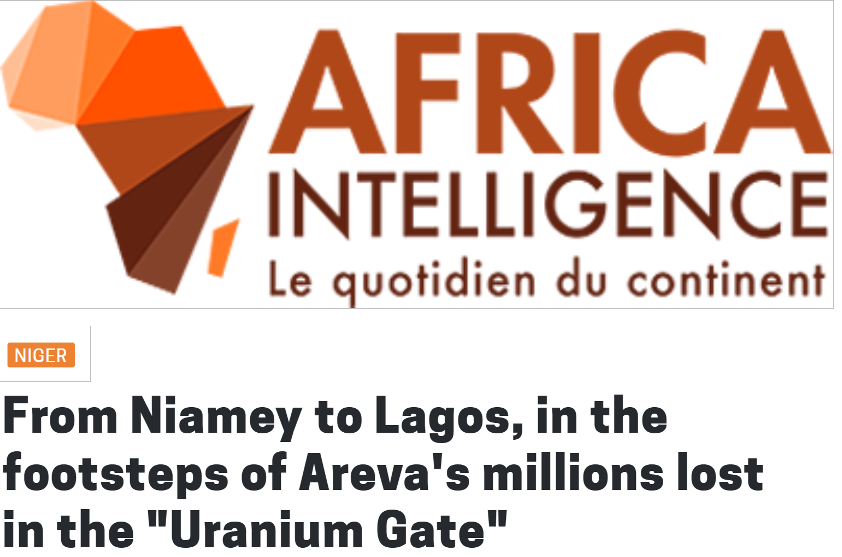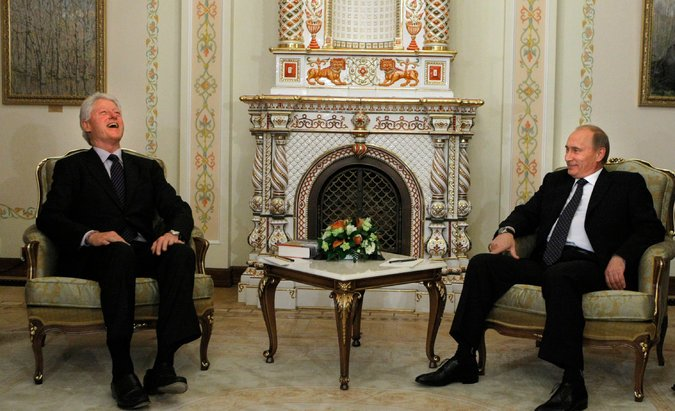The recent coup in Niger has reopened old wounds and all eyes are on the new sheriff in town, the National Council for the Safeguarding of the Fatherland (CNPS). Will the CNPS’s new leader, Abdourahamane Tchiani (Omar Tchiani) get to the bottom of the “UraniumGate” scandal and provide a long overdue justice to the people of Niger and restore some trust in Niger’s Government institutions?
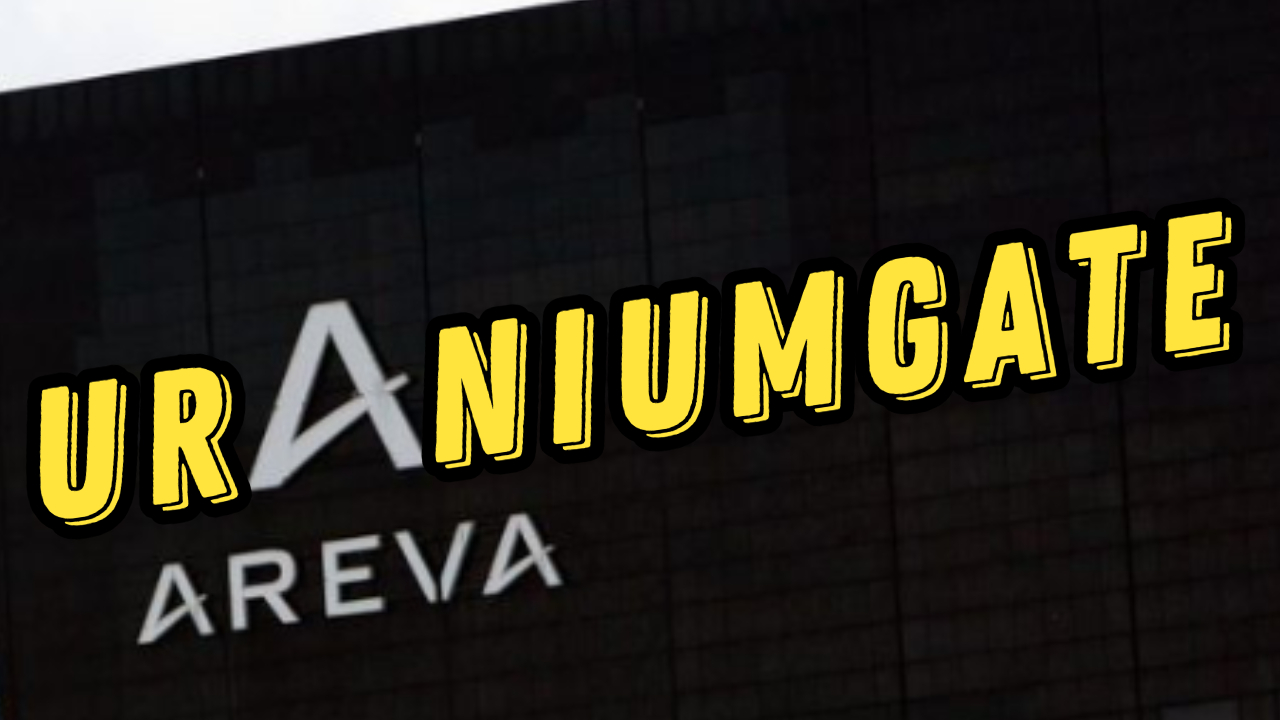 Freddie Ponton
Freddie Ponton
21st Century Wire
Ever since the Nigerien military coup on 26 July, headed by General Omar Tchiani from the National Council for the Safeguarding of the Fatherland (CNPS), there has been an exponential increase in the tensions between Niamey and the French capital. France is now seriously entertaining the possibility of invading the West African state with the complicity of the Economic Community of West African States (ECOWAS), a regional political and economic union of 15 countries located in West Africa. Last Sunday, following an emergency meeting, ECOWAS threatened to invade Niger and warned the CNPS in Niamey that sanctions were on the way, before providing them with a deadline, Sunday 6th August, for Mohammed Bazoum the former President of Niger, to be reinstated, or else…
The exploitation of French former colonies has continued unchallenged for over half a century since their independence, highlighting the illusion of sovereignty which we’re told these countries enjoy. It is clear for many followers of the Pan-African doctrine, that neocolonial overlords in Paris have been the only winner in this one-sided relationship.
Perhaps France’s “Europeanization” of Operation Barkhane and its irrefutable failures in Mali was a sign expressing the defeat of a politico-military utopia that has done nothing more but demonstrate the tactical and strategic inadequacy of the French armed forces and their consiglieres.
It’s important to first understand that it’s because of former colonial possessions like Niger that France is able to sit on the United Nations Security Council’s special VIP nuclear club.
Looking through the prism of political or strategic affairs, France’s military presence in Niger which operates under a relatively narrow ‘counterterrorism’ mandate does not take away the fact that France is in Niger to protect French uranium investments by maintaining several military bases in the country.
Military coup d’états, poor governance (particularly in the security sector), and incompetent and politicised security agencies are all historical occurrences in Niger, as stated in this 2020 report from the U.S. Institute of Peace. France, along with its assistance from the US military stationed in Niger could have, in principle, helped to boost Niger’s long-term security. However, by giving the security sector a regular stream of funding without paying attention to governance, accountability, transparency, or the security objectives and realities of the Nigeriens, security assistance providers have contributed to the weakening of the Niger government’s transparency and encouraged corruption when all they had to do was to address and prioritize the growing concerns of the Nigerien people. This has helped lead to the disconnect between the ruling class and the people which had preceded the coup.
How else can one explain that none of the foreign military presence in Niger saw the coup coming…?
What is “Uraniumgate”?
For over 50 years, Niger has been stripped of its natural resources namely Uranium. The neocolonialist approach to Africa increasingly resembles a heist rather than a fair partnership. Hence, it is not a surprise to see old cases such as the “UraniumGate” scandal resurfacing, which gives us more reasons to provide our readers with a little refresher.
The “Uraniumgate” scandal broke in February 2017 after documents pertaining to the $320 million sale of a significant amount of uranium were published in the Nigerien weekly Le Courrier, dating back to late 2011. French nuclear giant Areva first sold the stock to Energo Alyans in Russia, who then sold it to Optima Energy Offshore in Lebanon. A few days later, Optima sold the uranium to the Sopamin, a state-owned company (SOC) in Niger, which was under the supervision of the government of Niger
Later, Areva purchased this stock from Sopamin for a significantly higher price than what it had originally been sold for. Investigators from the French financial brigade were tasked with determining whether the financial arrangement would have made it feasible to conceal commissions or retro commissions after the French weekly newspaper Marianne reported on strange activities in the summer of 2015.
French news outlet L’Obs also reported that the French national financial prosecutor’s office had just opened an investigation into the case of “false trading” of uranium that would have made it possible for Areva to embezzle between 24 and 101 million dollars from the coffers of the former Areva group (now Orano) between the period of November 2011 and February 2012.
According to the weekly, the investigator in charge of the case who had been dubbed “UraniumGate” was already in charge of another investigation looking into Areva’s purchase of UraMin, a Canadian mining company active in Africa and owner of uranium reserves valued at 1.8 billion euros in 2007. Over the years, Areva has certainly managed to establish a name for itself, particularly for its unscrupulous business dealings and the nefarious individuals running this organisation.
The operation had turned into a fiasco: after the departure of its boss, Anne Lauvergeon, Areva had lost a significant portion of the company’s value, and at the end of 2011 had set aside a large provision of 1.5 billion euros. As a result, two judicial investigations were launched:
- On suspicion of fraud and corruption (UraniumGate),
- The provisions Areva had made in 2010 and 2011, with judges suspecting former officials of understating them in the books to conceal UraMin’s decline in value.
Several former executives were charged in the two investigations, including Anne Lauvergeon and the former head of the Mines Department, Sébastien de Montessus. The Paris Court of Appeals was scheduled to rule on December 17, 2020, on the validity of the contested charges in the accounting component, which has been the subject of a judicial tug-of-war between judges and the national financial prosecutor’s office since 2017.
According to the Nigerien journalists at “Le Courrier”, Société du Patrimoine des Nines du Niger (SOPAMIN) appeared in the transactions carried out by Areva.
SOPAMIN was immediately suspected by the opposition and the Nigerien press, of having partially embezzled the funds in question.
Thus, “Uranium Gate” is just another story in Africa where a government, in this instance Niger, is suspected of corruption for receiving bribes in exchange for mining contracts favourable to foreign companies. This scandal erupted under the watch of Niger Minister of Finance, Hassoumi Massoudou and the then President of Niger, Mahamadou Issoufou, who had secured for himself (with a little bit of help from France) two consecutive presidential mandates from 2011 to 2021.
The treasurer of the Nigerien government was asked to explain these transactions, which he summarily called a “commercial operation.” According to the Nigerien finance minister at the time, who came to power only in 2011, Areva had contacted him to inform him of the French company’s alleged business practice which was to engage in a kind of fast return trading in the uranium market, where the small margins account for the profits or losses. At the time, the head of state had assured that Areva’s representatives had promised to return part of the profits from this trade to the government of Niger.
Was it the truth and nothing but the truth?
The greatest export from Niger is uranium and the country is one of the world’s largest producers. Its first commercial uranium mine began operating in 1971, with strong government support for expanding uranium mining.
Niger rapidly became a leading uranium producer with nearly all of its output sold to Areva, but as we all know the people of Niger never got to enjoy the “yellow cake” wealth of their country, and remained one of the poorest countries in the World according to the United Nations and the World bank.
The uranium industry is very similar to the intelligence community, nothing is what it seems, and in the case of the “UraniumGate” scandal, what was presented as the truth by Niger Finance Minister, Hassoumi Massoudou was just a poor attempt to disguise a sophisticated international trading operation, to justify retro-commissions. But thanks to one of Niger’s most reliable investigative newspapers called “L’Événement”, a completely different story emerged which was featured in their February 20, 2017 issue. Unfortunately, the article has been taken down from their website, but the media ‘MatinLibre’ has recently published an article titled, “UraniumGate – The Whole Truth About A Case That Resurfaces”, which recounts the incredible kidnapping of AREVA and VINCI employees from the Arlit mines of Niger, and how a uranium trading deal was developed to pay the terrorist ransoms – whilst enriching few dignitaries at the same time.
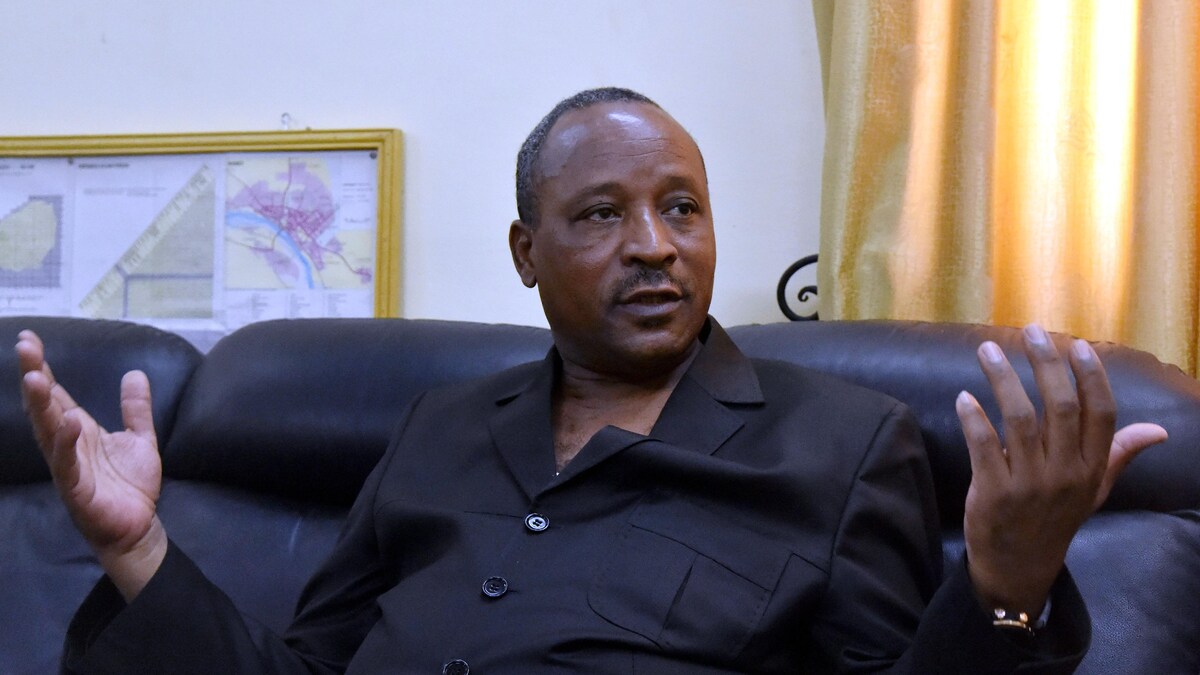 IMAGE: Niger Former Finance Minister, Hassoumi Massoudou.
IMAGE: Niger Former Finance Minister, Hassoumi Massoudou.
The article describes a financial package to pay a ransom to free Areva and Vinci workers held captive by Al-Qaeda in the Islamic Maghreb (AQIM). That was back in 2011, just a few months after President Issoufou Mahamadou came to power.
On the night of 15 to 16 September 2010, seven employees of Areva and Sogea-Satom, a subsidiary of the Vinci group, working at the Arlit Uranium Mine of Niger (Daniel and Françoise Larribe, Pierre Legrand, Marc Féret, Thierry Dol, Alex Kodjo Ahonado and Jean-Claude Rakotoarilalao) were kidnapped, as confirmed L’Événement investigative journalist Moussa Aksar.
L’Événement’s article explained how a former French intelligence officer, colonel of the General Directorate of External Security (DGSE), Jean-Marc Gadoullet, through his company called OPOS (Operations and Special Organizations), freed in early February 2011, three of the kidnapped hostages – the Frenchman Françoise Larribe, the Togolese Alex Kodjo Ahonado, and the Malagasy Jean-Claude Rakotoarilalao, using funds provided by AREVA and Vinci to pay a ransom of about 13.5 million euros.
To free the other 4 remaining hostages, the French president at the time, Nicolas Sarkozy, relied on his counterpart Niger President Issoufou Mahamadou and his networks, with the support of Pierre-Antoine Lorenzi, another negotiator, to free all the hostages.
Areva was eventually indicted for underestimating the jihadist threat as reported in this June 2022 article in the French media Le Parisien.
Not paying ransom to terrorists for the release of hostages, is an open secret and has always been the modus operandi in France. According to L’Événement, it was therefore necessary to find a mechanism to circumvent the law so that Areva could meet all the conditions imposed by the kidnappers of its employees. For the Nigerien investigative journalist, the idea of trading was developed in order to provide a cover story for the payment of the rest of the ransom.
According to several sources cited by Agence France Presse (AFP), the ransom to free the four hostages of Arlit was not paid by the French state, but in fact by their employers at AREVA, which confirmed the investigative journalist’s suspicions.
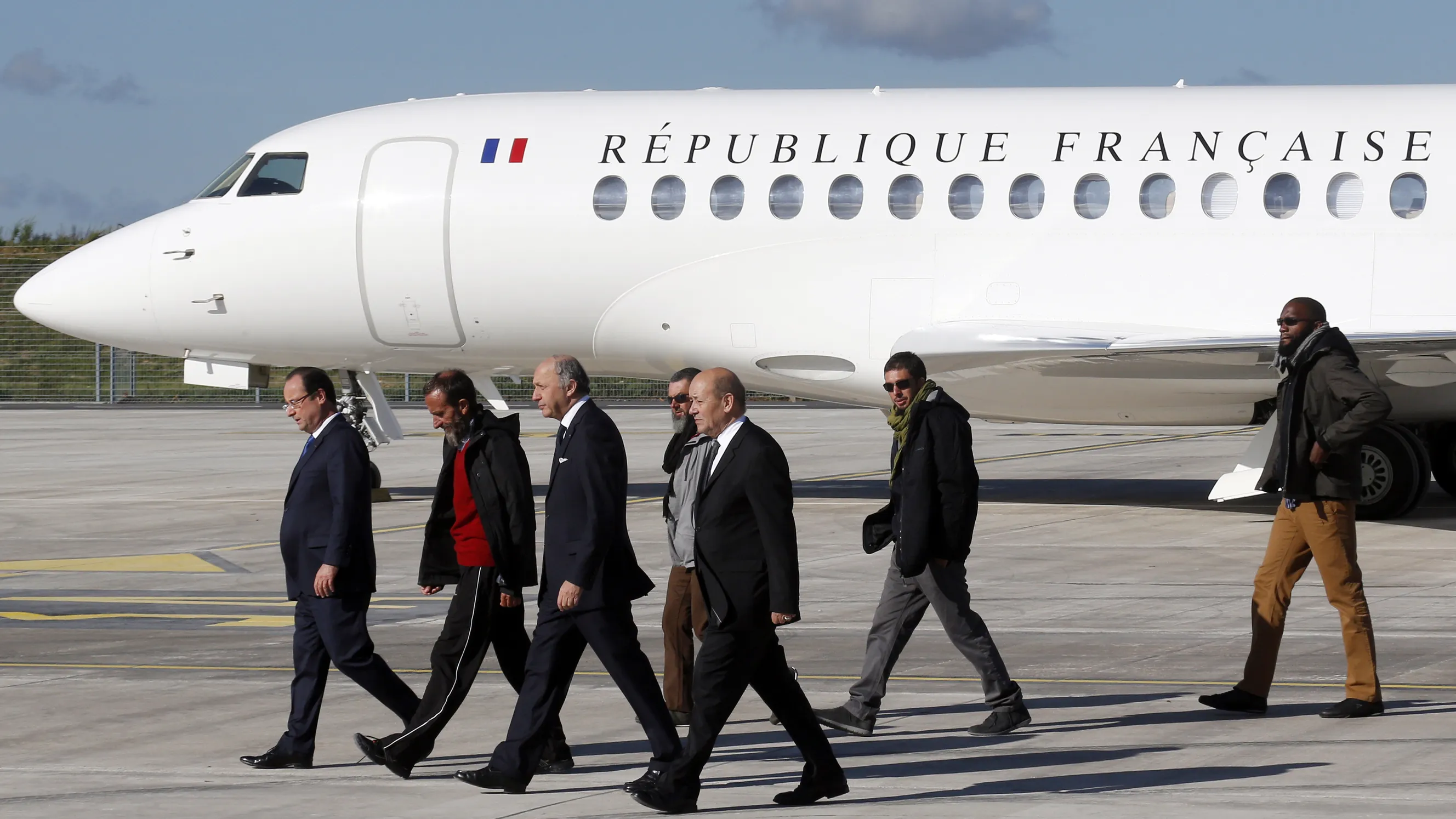 The President of the French Republic, François Hollande, the ministers Laurent Fabius and Jean-Yves Le Drian, and the ex-AREVA hostages, on October 31, 2013 in Villacoublay (Yvelines) – (FRANÇOIS GUILLOT / AFP)
The President of the French Republic, François Hollande, the ministers Laurent Fabius and Jean-Yves Le Drian, and the ex-AREVA hostages, on October 31, 2013 in Villacoublay (Yvelines) – (FRANÇOIS GUILLOT / AFP)
Was it a lie for a good cause?
According to the L’Événement (missing) article, there was first the issuance of a “false invoice” (November 25, 2011, editor’s note) from the company Optima Energy Offshore SAL in Lebanon to SOPAMIN for the sale of USD $319 million. According to L’Événement, this invoice was addressed to Mr. Hama Hamadou, then Director General of SOPAMIN, but curiously landed on the desk of Hassoumi Massoudou, the Chief of Staff of the President of the Republic of Niger at the time. He took care to sign it without any official document authorizing it, reports the newspaper. Then, the same process was used for a “false transfer” from the Sopamin account housed at BNP Paribas for the benefit of the company Optima.
In 2017, the BBC reported that Nigerien activists had filed a lawsuit regarding a uranium trade in which the nation allegedly lost $3.25 million. It also maintained that the ongoing legal battle centres around the allegation that Areva in 2011 bought a stock of uranium from Niger at a heavily discounted price, which caused the national treasury of Niger to lose money.
In 2017, a parliamentary commission inquiry opened, inviting Hassoumi Massoudou the then Niger Minister of Finance who retained the support of Niger president, Mahamadou Issoufou, and that of his successor in the Ministry of Interior, Mohamed Bazoum the second key figure in the presidential majority. “Uraniumgate” had eventually caught up with them.
The name Mohamed Bazoum should sound familiar to many of you who are reading this article, in effect, Mohammed Bazoum, who took over the presidency from Niger’s former president, Mahamadou Issoufou in February 2021, has recently been ousted during a “Coup” orchestrated by the National Council for the Safeguarding of the Fatherland (CNPS) under the leadership of General Omar Tchiani, the commander of the presidential guards.
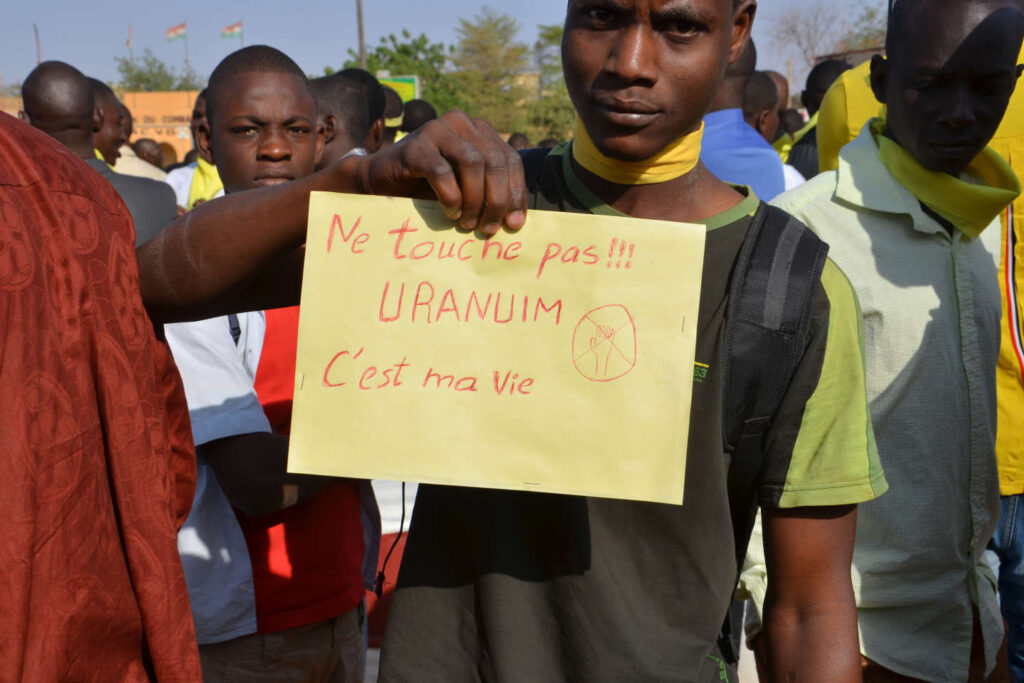
IMAGE: A Nigerian man holds a sign reading, “Do not touch !! Uranium, it’s my life” during a protest on February 6, 2014 in Niamey. Niger’s government and French nuclear giant Areva are engaged in tough talks on the future of uranium mining in the West African country, whose leaders want more money from the resource to help pay for development. Production resumed at Areva’s two uranium mines in Niger five days ago after weeks of shutdown. The yellow headband symbolizes the “yellow cake”, the name given to the uranium powder extracted from Areva’s mines in northern Nigeria. (AFP PHOTO / BOUREIMA HAMA)
How AREVA managed to lose no less than $101 Million
At the centre of the story, which the media outlet Jeune Afrique, a pan-African monthly newspaper, published in Paris by Jeune Afrique Media Group, was able to reconstruct, thanks to unpublished documents, four suspicious sales of the same uranium stockpile, a few days apart on November 21, 2011, involving the Société du Patrimoine des mines du Niger (Sopamin), Optima Energy, a Lebanese subsidiary of a group based in Switzerland, Energo Alyans, a Russian ghost company, and Areva, the French nuclear giant currently operating under the name ORANO and present in Niger through the Société des mines de l’Aïr (Somaïr) and Imouraren SA as well as the Compagnie minière d’Akouta (Cominak).
The stock was first sold by Areva UG (its mining arm) to a Russian company, Energo Alyans, for $220 million, or $40 per pound, $13 million less than its average market price during that period. Energo Alyans then sold the goods for $302.2 million on November 24, 2011, to Optima Energy, the Lebanese subsidiary of a Swiss company whose board of directors is chaired by Jean-Claude Meyer.
On November 21, 2021, AREVA embarked on a large-scale trading operation involving some 5.5 million pounds of uranium U308, more than half of Niger’s annual production. The result was a net loss of more than USD $101 million.
According to this enlightening article from“Jeune Afrique”, AREVA uranium’s stock was first sold by Areva UG (its mining arm) to a Russian company, Energo Alyans, for $220 million, or $40 per pound, $13 million less than its average market price during that period. Energo Alyans then sold the goods for $302.2 million on November 24, 2011, to Optima Energy, the Lebanese subsidiary of a Swiss company whose board of directors is chaired by Jean-Claude Meyer.
In a few days, the pound of U308 sold by Areva went from 40 to 54.95 dollars. Energo Alyans pockets a capital gain of USD $82 million.
Then came the third operation, for which the government in Niamey was solicited. On November 25, 2011, Optima sold its cargo to Sopamine for $319.8 million, or more than $58 per pound, while it was listed at only $53 that day. In twenty-four hours, Optima made a profit of $17.6 million on paper. As soon as the U308 was in the hands of the Nigerien company, Areva UG bought it back for 320.65 million dollars. Sopamin pocketed $850,000, while the subsidiary of the French nuclear group recorded, in the end, a loss of USD $101 million.
“According to an internal report, the shortfall “had to be compensated” by a positive “operating income” at Areva NP, another branch of the multinational, specializing in the construction and marketing of reactors, and led in 2011 by Philippe Knoche, now CEO of Orano (ex- Areva). In Niger, the operation was validated by Hassoumi Massaoudou”, wrote Jeune Afrique.
“In November 2011, the Minister of Finance Hassoumi Massoudou officially had no link with Sopamin. He had just managed the presidential campaign of Mahamadou Issoufou, of which he became the chief of staff at the presidency, with the rank of minister. Nevertheless, it was he who signed the transaction between Sopamin and Optima Energy and initialled the order for a transfer of $ 319 million, made via BNP Paribas to Emirates NBD, a bank in Dubai.” Jeune Afrique explains.
However it would appear that Minister of Finance Hassoumi Massoudou intervened with Sopamin to authorize the transaction after receiving a phone call from Sébastien de Montessus a then member of Areva’s management board and director of the Business Group Mines subsidiary. He himself acted on behalf of Areva NP, which needed a stockpile of uranium under a contract.
“He just wanted to use the name Sopamin. He told me that Niger would make money in the operation,” Hassoumi Massaoudou said. He then made arrangements with the director of Sopamin, Hamma Amadou and officially, the move carried out by the Nigerien company was paid to the State.
According to Jeune Afrique’s investigation, “AREVA had all the elements of this trade in its possession, seven days prior the transaction between Niger and Optima Energy.”
Jeune Afrique’s investigation goes even further by explaining how Jean-Michel Guiheux, the current Vice President Uranium Sourcing & Supply Contracts, at Orano Mining (former AREVA) even guaranteed at a time the transfer of the $319 million from Sopamin to Optima Energy as of November 17, 2011, as evidenced by a letter addressed to the Dubai bank Emirates NBD:
“The transfer of material to and from Optima Energy is managed by UG MbH [a subsidiary of Areva in Frankfurt, Germany, specialized in uranium trading],” the document says: “Seven days before the operation between Niger and Meyer, AREVA had all the elements of the trade in hand. According to another document, the assembly was even discussed as early as July of the same year.”
The point here is that “Sopamin had no interest in buying uranium from a foreign company” because it was already unable to sell its own stockpile extracted from its own soil in 2011, and moreover “Sopamin” had to use the services of Areva to market 556 tons (about 1.2 million pounds of Nigerien uranium). An operation that appears in the financial balance sheet of the French group.
Some have qualified the scheme set up by Areva, as a classic fraudulent arrangement.
After conducting its preliminary investigation for almost five years, the French prosecutor’s office entrusted the continuation of the investigations in February 2020 to an investigating judge for “corruption of a foreign public official, private corruption, criminal association, misuse of corporate assets, breach of trust and organized laundering of these offences,” the prosecutor’s office said, confirming information from the French magazine L’Obs.
“If it turns out that there have been embezzlement or any other act that is likely to have harmed the group, Orano (former AREVA) will take the necessary legal action to defend its interests,” a spokesman for the nuclear group told AFP.
An article released in March of 2023 by Africa Intelligence, identifies OKI General Trading a company based in Dubai, as the company that enable banking transactions at the time. Indeed, for the American and French governments quoted by the media in their article “From Niamey to Lagos”, on the trail of the millions lost by AREVA in “URANIUM GATE “, If true, OKI could possibly be at the bottom of numerous transfers which benefited many actors such as the Nigerien President of the time. According to his French collaborators, president Mahamadou Issoufou would have acquired in his bank account in Dubai a transfer of 2. 6 million US dollars in March 2012. A payment that would establish a bribe in the “Uraniumgate” case.
On May 12, 2023, the lawyers of the former President of Niger Mahamadou Issoufou denounced in a statement, the content of what they have called a “false and defamatory” article published in the issue of the daily “Africa Intelligence” on April 27, 2023. According to them, this article, entitled “From Niamey to Lagos, on the trail of the millions lost by AREVA in URANIUM GATE”, “seriously questions the integrity” of their client. Indeed, according to “Africa intelligence”, French and American investigators revealed that the former leader of Niger would have received several million US dollars in a case of sale at a loss of uranium where Areva (now Orano) lost more than 23 million US dollars.
Africa Intelligence article From Niamey to Lagos – published on 27/04/2023.
Conclusion
The mining of uranium in Niger should have been a successful story for the people of Niger, but it seems that once more corporate greed, government corruption, and secrecy (or lack of transparency) have colluded to turn this gift into a nightmare affecting not only the old nomadic Tuareg tribes of Niger who were denied any revenue from the uranium extracted from their lands, but also the catastrophic environmental disaster left behind by Areva and Orano, whose “Over Burden Removal” (OBR) strategy seems to have been omitted or perhaps blatantly ignored by the consecutive governments at the helm of Niger since Uranium was discovered at Azelik in Niger in 1957, and commercial uranium production undertook at the Arlit mines, 900 km northeast of the capital Niamey back in 1971.
Furthermore, it is not only “UraniumGate that still remains to be elucidated, in 2015, almost on the eve of the 2016 general elections in Niger, at the request of the Nigerien State, Pakistan offered 15,000 tonnes of rice for the precarious food situation of the people of Diffa, who have been suffering under the sword of Boko Haram. These 15,000 tonnes never reached their destination in Niger. And the people of Diffa, displaced from their own lands, do not know that their situation, painful as it is, has rather served as a springboard for individuals to enrich themselves. The 15,000 tonnes of rice were diverted and sold at low prices at the Port of Cotonou. The seller, the buyer, the intermediaries, the amounts collected, and the banks through which the funds transited – everything is known and published in the columns of the newspaper LeCourier. But to date, justice has not been done, despite all the facts.
The authors of these alleged crimes, whose names have been known for a very long time, are still moving about freely, enriched by their thieveries. But hope is on the horizon and perhaps the recent coup orchestrated by the National Council for the Safeguarding of the Fatherland (CNPS) on 26th July 2023 who triggered many arrests of senior politicians will allow justice to finally prevail, making sure these neocolonialists’ puppets will end up where they belong which is behind bars.
Let’s not forget that the United States also had its own Uraniumgate scandal, known as Uranium One, a story which can be revisited here.
Who is laughing now?
READ MORE FRANCE NEWS AT: 21st CENTURY WIRE FRANCE FILES
ALSO JOIN OUR TELEGRAM CHANNEL
SUPPORT OUR INDEPENDENT MEDIA PLATFORM – BECOME A MEMBER @21WIRE.TV



